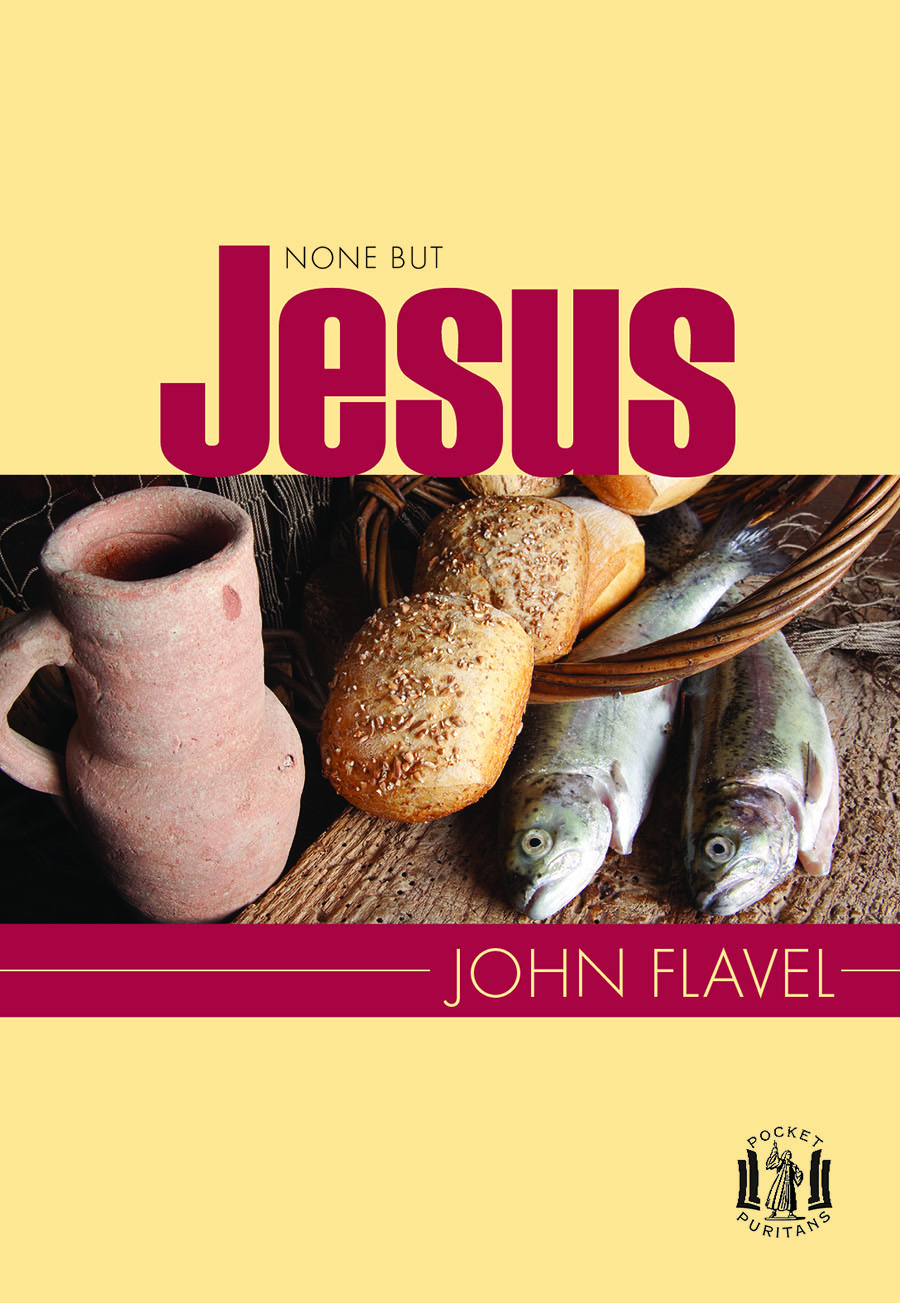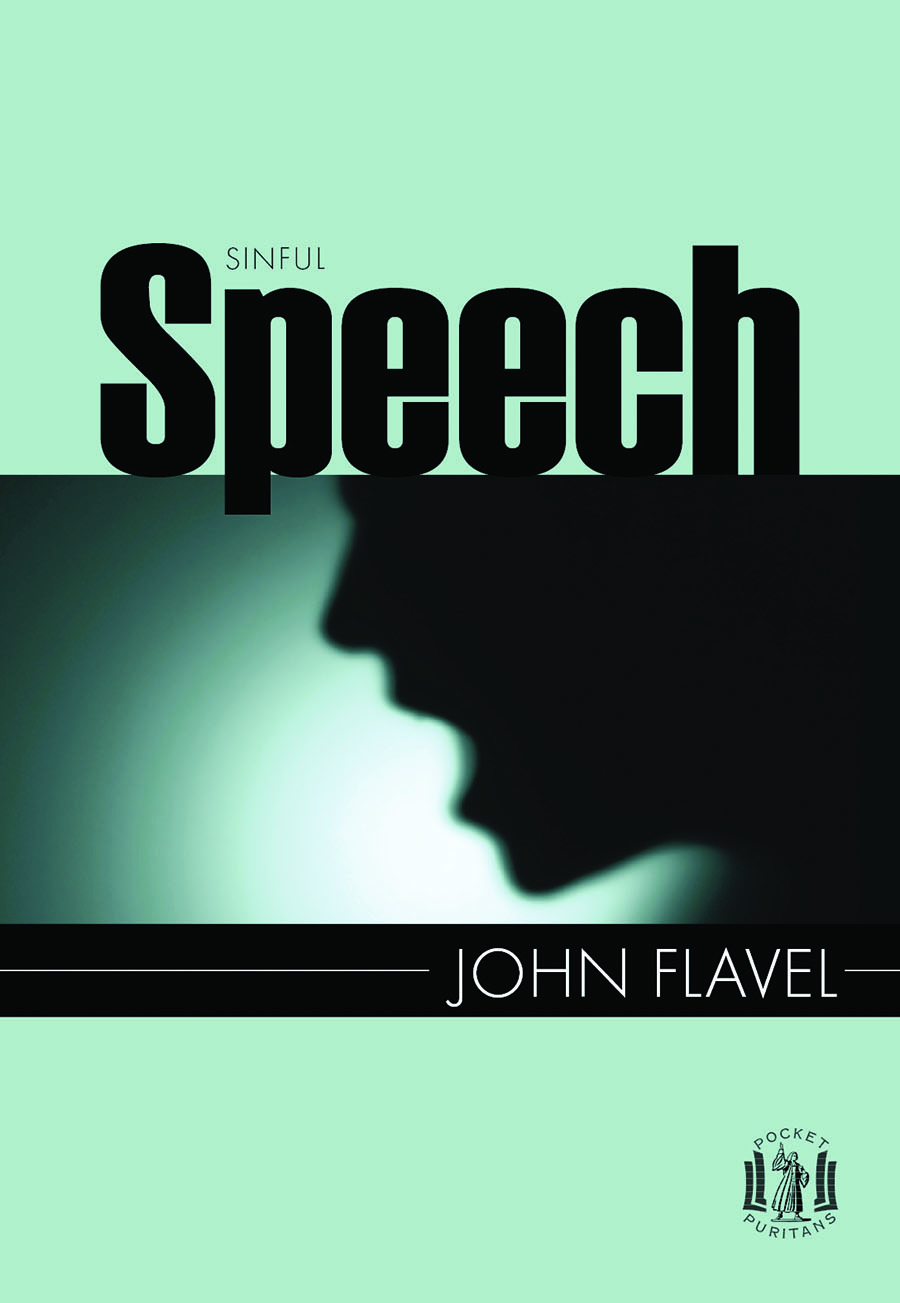Observations on Error
The following is an abridged extract from Flavel’s great treatise A Blow At the Root; or The Causes and Cure of Mental Errors. The complete work can be found in Flavel’s Works, vol. III pp. 419-492, 1820 edition. Flavel is one of the richest of the Puritan writers.
JOHN FLAVEL (c. 1628-1691)
An error is any departure or deviation in our opinions or judgments from the perfect rule of the Divine law; and to this, all men by nature, are not only liable, but inclinable. Indeed men, by nature, can do nothing else but err; Psa. 58:3, ‘He goeth astray as soon as born’; makes not one true step till renewed by grace, and many false ones after his renovation. The life of the holiest man is a book with many erratas; but the whole edition of a wicked man’s life, is but one continued error; he that thinks he cannot err, manifestly errs in so thinking. The Pope’s supposed and pretended infallibility hath made him the great deceiver of the world, A good man may err, but is willing to know his error, and will not obstinately maintain it when he once plainly discerns it.
The word of God, which is our rule, must be the only test and touchstone to try and discover errors. It is not enough to convince a man of error, that his judgment differs from other men’s; you must bring it to the word, and try how it agrees or disagrees therewith; else he that charges another with error, may be found in as great or greater an error himself. None are more disposed easily to receive, and tenaciously to defend errors, than those who are the heads or leaders of erroneous sects; especially after they have fought in the defence of bad causes, and deeply engaged their reputation.
Observation 1
There are divers sorts and kinds of knowledge. Some is human and some divine; some speculative, and. some practical; some ingrafted as the notions of morality, and some acquired by painful search and study: but of all knowledge, there is none like that Divine and supernatural knowledge of saving truths revealed by Christ in the scriptures. Hence ariseth the different degrees both of the sinfulness and dangers of errors, those errors being always the worst, which are committed against the most important truths revealed in the gospel.
These truths lie enfolded either in the plain words, or in the evident and necessary consequences from the words of the Holy Scripture; scripture-consequences are of great use for the refutation of errors: it was by a scripture-consequence that Christ successfully proved the resurrection against the Sadducees, Matt. 22. The Arians, and other heretics, rejected consequential proofs, and required the express words of Scripture only, hoping in that way to defend their errors against the arguments and assaults of the orthodox.
Some think that reason and natural light is abundantly sufficient for the direction of our lives. But certainly nothing is more necessary to us for that end than the written word; for though the remains of natural light have their place and use in directing us about natural and earthly things, yet they are utterly insufficient to guide us in spiritual and heavenly things, 1 Cor. 2:14. ‘The natural man receiveth not the things of the Spirit of God.’
Observation 2
Error is binding upon the conscience as well as truth; and altogether as much, and sometimes more influential upon the affections and passions than truth is.
Error presents not itself to the soul in its own name and nature, but in the name and dress of truth, and under that notion it hinds the conscience, and vigorously influences the passions and affections; and then being more indulgent to lust than truth is, it is, for that, so much the more embraced and hugged by the deceived soul, Acts 22:4, 5. The heat that error puts the soul into differs from religious zeal, as a feverish doth from a natural heat; which is not indeed so benign and agreeable, but much more fervent and scorching. A mind under the power of error is restless and impatient to propagate its errors to others, and these heats prey upon, and eat up the vital spirits and powers of religion.
Observation 3
It is exceeding difficult to get out error, when once it is imbibed, and hath rooted itself by an open profession.
Error, like some sorts of weeds, having once seeded in a field or garden, it is scarce possible to subdue and destroy them; especially if they be hereditary errors or have grown up with us from our youth. It is a great advantage to truth or error to have an early and long possession of the mind. The pharisees held many erroneous opinions about the law, as appears by their corruptive commentaries upon it, refuted by Christ, Matt. 5. But did He root them out of their beach and hearts thereby? No, no; they would sooner rid Him out of the world. The Sadducees held a most dangerous error about the resurrection; Christ disputed with them to the admiration of others, and proved it clearly against them; and yet we find the error remaining long after Christ’s death, 2 Tim. 2:18. The apostles themselves had their minds tinctured with the error that Christ should be outwardly great and magnificent in the world and raise His followers to great honours and preferments amongst men. Christ plainly told them it was their mistake and error; ‘for the Son of man came not to be ministered unto, but to minister.’ Yet this did not rid their minds of the error; it stuck fast in them, even till His ascension to heaven.
O how hard is it to clear the heart of a good man once leavened with error! and much more hard to separate it from a wicked man.
Observation 4
It deserves a remark, that men are not so circumspect and jealous of the corruption of their minds by errors, as they are of their bodies in times of plague; or of their lives with respect to gross immoralities.
Spiritual dangers affect us less than bodily; and intellectual evils less than moral. Whether this be the effect of hypocrisy, the errors of the mind being more secret and invisible than those of the conversation, God only knows, man cannot positively determine.
Or whether it be the effect of ignorance, that men think there is less sin and danger in the one than in the other; not considering that an apoplexy seizing the head, is every way as mortal as a sword piercing the body. The apostle, in 2 Peter 2:1, calls them damnable heresies, or heresies of destruction. An error in the mind may be as damning and destructive to the soul as an error of immorality or profaneness in the life.
Observation 5
It is a great judgment of God to be given over to an erroneous mind.
The understanding is the leading faculty, that guides, and the other powers and affections of the soul follow, as horses in a team follow the fore-horse. Now, how sad and dangerous a thing is this, for Satan to ride the fore-horse, and guide that which is to guide the life of man? That is a dreadful, spiritual, judicial stroke of God which we read of, Rom. 1:26.
Observation 6
Error being conscious to itself of its own weakness, and the strong assaults that will be made upon it, evermore labours to defend and secure itself under the wings of reason and scripture.
The great patrons of error do above all things labour to gain countenance to their errors from the written word. To this end they manifestly wrest and rack the scriptures to make them subservient to their opinions; not impartially studying the scriptures first, and forming their notions and opinions according to them. But they bring their erroneous opinions to the scriptures, and then, with all imaginable art and sophistry, wire-draw and force the scriptures to countenance and legitimate their opinions.
Observation 7
God, in all ages, in His tender care for His churches and truths, hath still qualified and raised up His servants for the defence of His precious truths, against the errors and heresies that have successively assaulted them.
When Arius,1 that cunning and deadly enemy to the Deity of Christ, struck at the very heart of our religion, faith, and comfort, the Lord had His well-furnished Athanasius in readiness to resist and confound him. And as He had his Athanasius to defend the Deity of Christ, so He wanted not his Basil to defend the doctrine of the Holy Spirit against Macedonius.
So when Pelagius was busily advancing free-will, into the throne of free-grace, providence wanted not its mallet in learned and ingenious Augustine, to break him and his idol to pieces. And it is highly remarkable (as the learned Dr. Hill observes), that Augustine was born in Africa, the same day that Pelagius was born in Britain.
When Gotteschalcus published his dangerous doctrine about predestination, the Lord drew forth Hincmarus to detect and confute that error, by evincing clearly, that God’s predestination forces no man to sin.
So, from the beginning and first rise of Popery, that centre and sink of errors, we have a large catalogue of the learned and famous witnesses, which, in all ages, has faithfully resisted and opposed it; and when, notwithstanding all, it had even over-run Europe like a rapid torrent, or rather inundation of the ocean, and Germany was brought to that pass, that if the Pope had but commanded it, they would have eaten grass or hay; then did the Lord bring forth invincible Luther, and with him a troop of learned champions. Since that time the cause of Popery has become desperate.
Observation 8
There is a remarkable connection between errors, one linking in and drawing another after it.
Among erroneous sects there is always some central error, and for the service of that one leading and darling error other lesser errors are maintained. Thus we see the whole troop of indulgences, bulls, masses, pilgrimages, purgatory, with multitudes more, flow from, and are pressed into the service of the Pope’s supremacy and infallibility so, in other sects, men are forced to entertain many other errors, which, in themselves considered, they have no great kindness for; but they are necessitated to entertain them in defence of that great, leading, darling opinion they first espoused.
Some cry up, and trumpet abroad the sovereign power of free-will, even without the preventing grace of God, enabling men to supernatural works, as if the will alone had escaped all damage by the fall, and Adam had not sinned in that noble virgin-faculty. To defend this idol they are forced to deny several other great and weighty truths, such as particular, eternal election, the certainty of the saints’ perseverance, the necessity of preventing grace in conversion: which errors are but the out-works raised in defence of that idol.
Observation 9
Nothing gives more countenance and increase to error than a weak or feeble defence of the truth against it.
The strength of error lies much in the weakness of the advocates and defendants of truth. Every friend of truth is not fit to make a champion for it. Many love it, and pray for it, that cannot defend and dispute it. ‘I can die for the truth‘ (saith the martyr), ‘but I cannot dispute for it.‘ Zuinglius blamed Carolostadius for undertaking the controversy of that age, because (said he) his shoulders were too weak for the burden.
He is a rare and happy disputant, who can clear and carry every point of truth, of which he undertakes the defence. It were happy for the church, if the abilities and prudence of all her friends were commensurate and equal to their love and zeal. Every little sword, every weak or impertinent answer of a friend to truth, is quickly turned into a weapon to wound it the deeper.
Observation 10
Errors of judgment are not cured by compulsion and external force, but by rational conviction, and proper spiritual remedies.
Who can force me to believe what I will not, or not to believe what I will? The rational and gentle spirit of the gospel is the only proper and effectual method to cure the diseases of the mind.
Observation 11
Erroneous doctrines producing divisions and fierce contentions amongst Christians, prove a fatal stumbling-block to the world, fix their prejudices, and obstruct their conversion, to Christ.
Errors dissolve the lovely union of the saints, and thereby scare off the world from coming into the church. This is evidently implied in that prayer of Christ, John 17, ‘That all his people might be one, that the world might believe that the Father had sent him.’ There is indeed no just cause for any to take offence at the Christian reformed religion, because so many errors and heresies spring up among the professors of it, and divide them into so many sects and parties; for, in all this we find no more than what was predicted from the beginning, 1 Cor. 11:18, 19. ‘I hear that there he divisions among you, and I partly believe it; for there must be also heresies among you,’ etc. And again, Acts 20:30, ‘Also of your own selves shall men arise, speaking perverse things, to draw away disciples after them.’
These things destroy not the credibility of the Christian religion, but increase and confirm it, by evidencing to the world the truth and certainty of Christ’s predictions (which were quite beyond all human foresight) that as soon as His doctrine should he propagated, and a church raised by it, errors and heresies should spring up among them, for the trial of their faith and constancy.
Nevertheless, this no way excuses the sinfulness of errors and divisions in the church. Christ’s prediction neither infuses nor excuses the evil predicted by Him: for what He elsewhere speaks of scandals is as true in this case of errors; ‘These things must come to pass, but woe be to that man by whom they come.’
Observation 12
How specious and taking soever the pretences of error be, and how long soever they maintain themselves in esteem among men, they are sure to end in the loss and shame of their authors and abettors at last.
Truth is a rock that the waves of error dash against, and evermore return in froth and foam: Yea, they foam out their own shame, saith the apostle, Jude 13. What Tacitus spake of crafty counsels I may as truly apply to crafty errors: ‘They are pleasant in their beginning, difficult in their management, and sad in their end and issue.’
Suppose a man have union with Christ, yet his errors are but as so much hay, wood, straw, stubble, built (or rather endeavoured to be built) upon a foundation of gold this the fiery trial will burn up; the author of them suffers loss and though he himself may he saved, yet it will he so as by fire, 1 Cor. 3:12-15. The meaning is, he makes a narrow escape. Like a man who leaps out of a house on fire from a window or battlement and with great difficulty saves his life; just so errorists shall be glad to quit their erroneous opinions which they have taken so much pains to build, and draw others into; and then, O what a shame must it be for a good man to think how many days and nights have I worse than wasted to defend and propagate an error, which might have been employed in a closer study of Christ, and mine own heart! Keckerman relates a story of a vocal statue, which was thirty years a making by a cunning artist, which by the motion of its tongue with little wheels, wires, etc. could articulate the sound, and pronounce an entire sentence. This statue saluting Aquinas, surprised him, and at one stroke he utterly destroyed the curious machine, which exceedingly troubled the fond owner of it, and made him say with much concern, ‘Thou hast at one stroke destroyed the study and labour of thirty years.’
Besides, what shame and trouble must it be to the zealous promoters of errors, not only to cast away so vainly and unprofitably their own time and strength, which is bad enough, but also to ensnare and allure the souls of others into the same, or worse mischief: for though God may save and recover you, those that have been misled by you may perish.
This article was first published in the September 1958 edition of the Banner of Truth magazine.
Notes
- A man of subtle part and blameless life, which made his heresy much more the spreading and taking.
Pocket-Sized Flavel Titles

None But Jesus
Selections from the writings of John Flavel
Description
The following is an abridged extract from Flavel’s great treatise A Blow At the Root; or The Causes and Cure of Mental Errors. The complete work can be found in Flavel’s Works, vol. III pp. 419-492, 1820 edition. Flavel is one of the richest of the Puritan writers. JOHN FLAVEL (c. 1628-1691) An error is any […]

Sinful Speech
Sins of the Tongue
Description
The following is an abridged extract from Flavel’s great treatise A Blow At the Root; or The Causes and Cure of Mental Errors. The complete work can be found in Flavel’s Works, vol. III pp. 419-492, 1820 edition. Flavel is one of the richest of the Puritan writers. JOHN FLAVEL (c. 1628-1691) An error is any […]

Description
The following is an abridged extract from Flavel’s great treatise A Blow At the Root; or The Causes and Cure of Mental Errors. The complete work can be found in Flavel’s Works, vol. III pp. 419-492, 1820 edition. Flavel is one of the richest of the Puritan writers. JOHN FLAVEL (c. 1628-1691) An error is any […]

Description
The following is an abridged extract from Flavel’s great treatise A Blow At the Root; or The Causes and Cure of Mental Errors. The complete work can be found in Flavel’s Works, vol. III pp. 419-492, 1820 edition. Flavel is one of the richest of the Puritan writers. JOHN FLAVEL (c. 1628-1691) An error is any […]
Latest Articles
Finished!: A Message for Easter 28 March 2024
Think about someone being selected and sent to do an especially difficult job. Some major crisis has arisen, or some massive problem needs to be tackled, and it requires the knowledge, the experience, the skill-set, the leadership that they so remarkably possess. It was like that with Jesus. Entrusted to him by God the Father […]
Every Christian a Publisher! 27 February 2024
The following article appeared in Issue 291 of the Banner Magazine, dated December 1987. ‘The Lord gave the word; great was the company of those that published it’ (Psalm 68.11) THE NEED FOR TRUTH I would like to speak to you today about the importance of the use of literature in the church, for evangelism, […]
